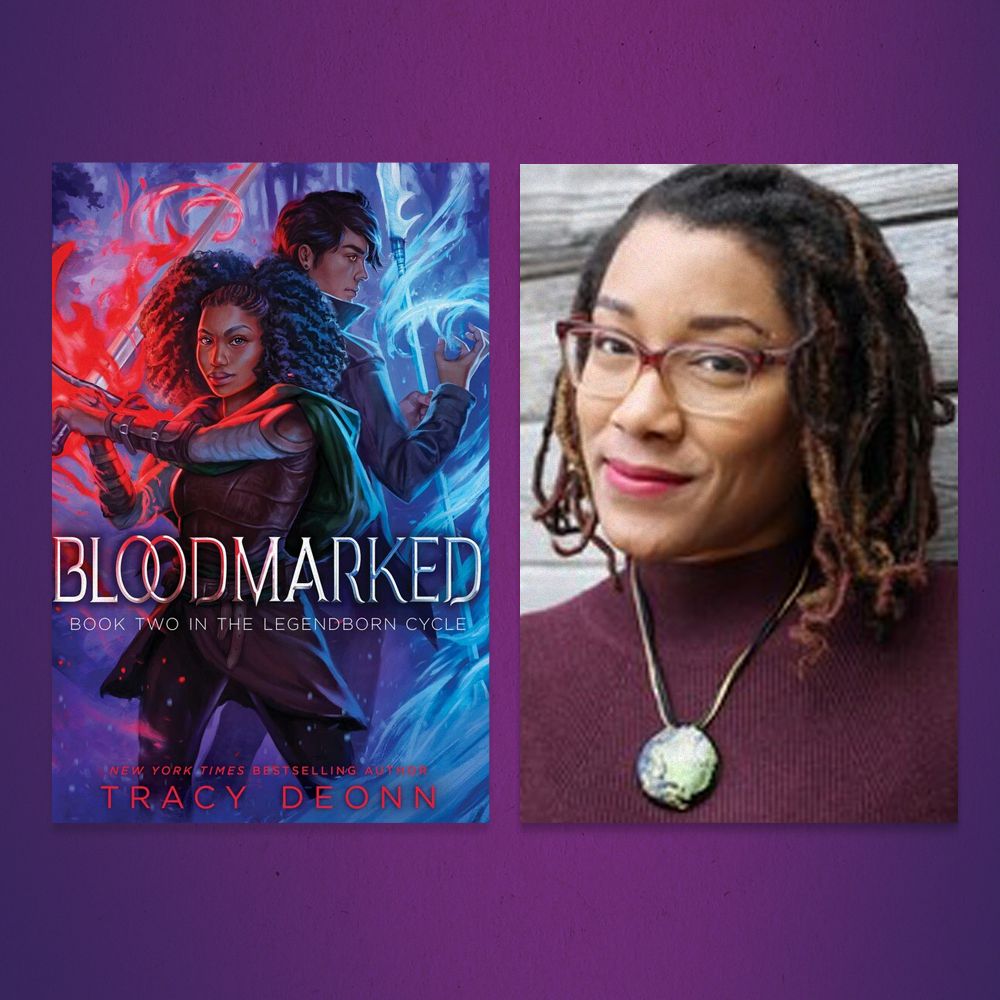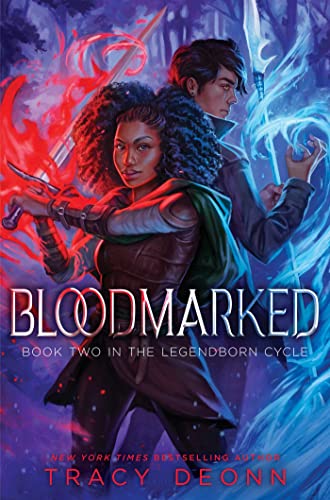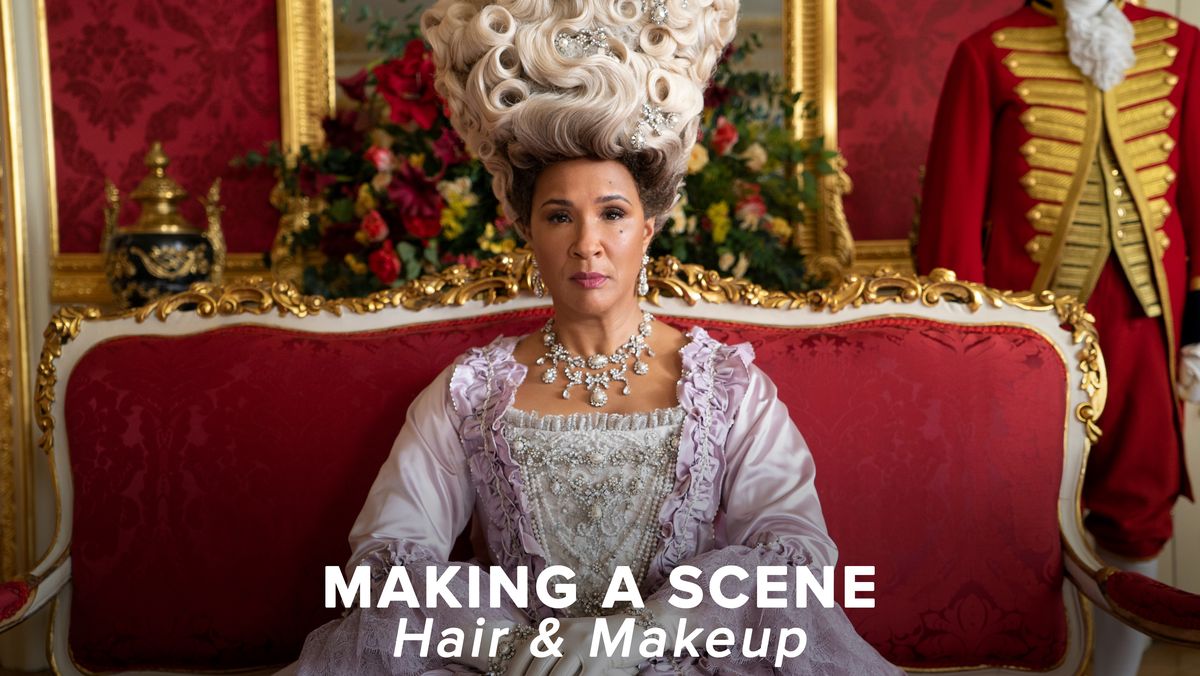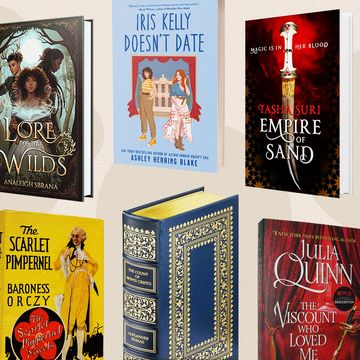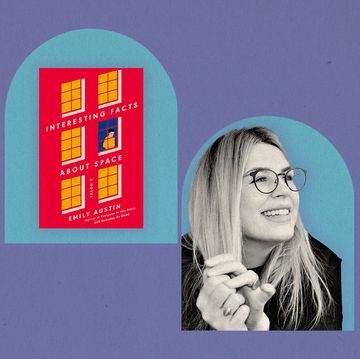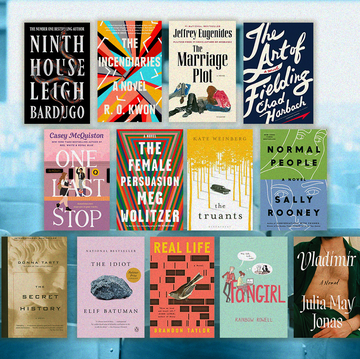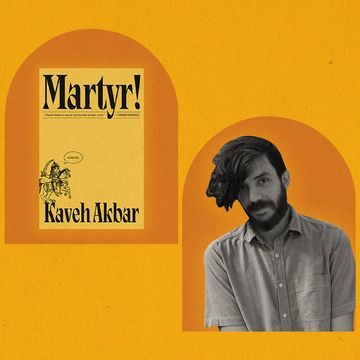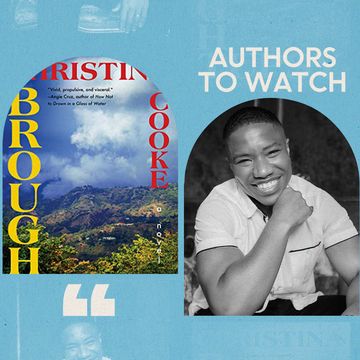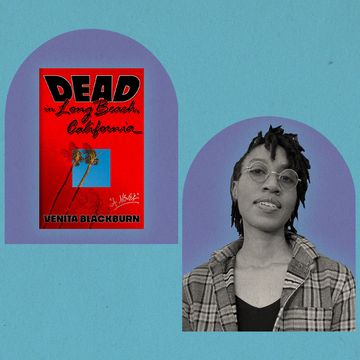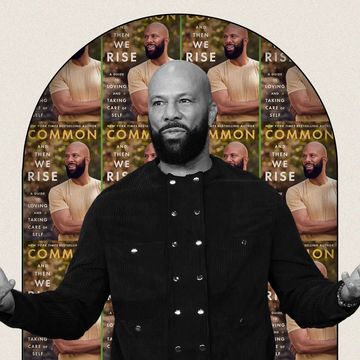Black characters often are depicted as expendable in the science fiction and fantasy genres; however, that pattern is changing with the wave of pioneering Black voices in the publishing industry. Tracy Deonn is one of those voices.
Deonn's fantasy novel Legendborn follows Bree, a 16-year-old Black American girl, as she navigates grief, infiltrates a white magic secret society, searches for answers about her mother’s death, and discovers the power within herself. It is her strong emotions and passion that carry her throughout her journey and give her strength to face the unimaginable. “Black girls [and] women have been taught to question our own emotions,” Deonn tells Shondaland during a recent interview. “Our emotions are valid … and we deserve to be the engine behind our own stories.”
For many Black fantasy readers, the Legendborn series is one of the first book series where they can see themselves as a main character fully represented in the pages. Shondaland caught up with Deonn to discuss the importance of representation, her inspiration behind the series, her upcoming book tour, and her highly anticipated sequel, Bloodmarked, which hits shelves on November 8.
KAYLA GRANT: Where did your inspiration to write the Legendborn series come from?
TRACY DEONN: My mother is a big influence in my life. She was a big science fiction [and] fantasy fangirl, before fangirl was the word. She was reading the original X-Men in the ’60s, and she was watching the original Star Trek. In my baby book, I think she mentioned the Return of the Jedi. I really owe a lot of my ability to wonder if, how, why, and to imagine greater than what we see, to her.
When she passed away, I was in my early 20s, and it was devastating. But one of the things that happens when we lose the people we love is people start telling stories, [and] you start thinking about stories differently. I found out from my aunt that my grandmother had passed away at my mother’s exact same age. We were within three months of age when we both lost our mothers. There was a moment where I understood her. Unfortunately, the thing that made me really deeply understand those moments where she talked about her mother is the exact context in which I lost her. That feeling of continuity, both broken and also joined, was a big moment for me.
I asked more questions, [and] I found out that the same thing had happened to my great-grandmother. So, my grandmother had never met her grandmother. I remember thinking this impossible question: “Why did this happen?” There was no answer. But I remember thinking, “I’m a science fiction [and] fantasy writer, so I can write the answer.”
A couple of days after my mother died, the image of a girl who could go on a quest to understand why this happened to her family came to me, and that was Bree. She wasn’t named Bree at the time, but she was a very fierce girl who was grieving and angry, and so that was the birth of Legendborn, and that was 2008. It’s a very long-winded way of saying it came from grief, from stories that I needed to understand, and from an impossible question that I needed an answer to.
KG: Without giving away any spoilers for the book, are there any themes that you touched on in Legendborn that you were able to amplify in Bloodmarked?
TD: Legendborn digs into what it means to be the only in a room. In the United States, we’re still in situations where Black students find themselves in a room and being the only Black person. Sometimes I hear from folks who wish that Bree was surrounded by Black people in her classes, or at the Legendborn secret society, and I always say that’s a different book. The book that I wrote is about engaging with, deeply understanding, analyzing, holding on to, [and] reshaping your own Blackness in spaces where it’s being challenged or dismissed by other people.
The other theme that I wanted to really engage with is like the types of stories and the type of people that become legendary. Growing up in North Carolina [and] going to [the University of North Carolina at Chapel Hill], [the Confederate monument] Silent Sam was up the entire time I was a student there and was the specter of a certain type of racism. How do these things become memorialized and legendary, and Black American people, whose ancestors were enslaved, get put in a position of absence of knowledge? We come up against the wall of enslavement, and for many of us, [we] are not able to go past that because things weren’t documented.
On the other side, I was able to dig into the character dynamics more. There’s more funnier, deeper, complicated interactions between all of the characters. We get a lot more of William, the healer, [and] Alice, the best friend who is Bree’s constant companion. We get a lot more Selwyn Kane, who is a fan favorite.
KG: I found Legendborn through TikTok, where Black creators are thankful that you wrote this story. How does that recognition feel?
TD: I needed that book growing up, and I feel very fortunate that I could write the story that I needed after the fact that I needed it. It came from such a personal space that it feels like an honor every time someone really sees the book. When people pick up what you’re putting down as an artist, it’s priceless, and I hope it never gets old for me.
There’s a line in Legendborn where Bree says she wants to make her mother’s death count. Whenever I get a response like that about the book, I feel like that’s what I did with Legendborn. It would never have happened if I hadn’t lost my mother. Now, I think Legendborn is probably the first thing in my life where I would look at it and say, “I would never give this up,” which means this is how it had to happen.
KG: How does it feel to be one of the pioneering voices in the diversification of the fantasy genre?
TD: In some ways, I am waiting for someone to be like, “I’ve seen it done before,” and for me to not have been a pioneer because the idea that it has taken until me [to see a mainstream Black author in the fantasy genre] is overwhelming. But I’m a big fantasy reader too, and I had never seen it. In terms of seeing myself, Legendborn is my first too, to be honest, and that feels like a big responsibility. It feels like a gift.
I really wanted to write something I’ve never seen. The thing that’s very unique about Legendborn is that for [the young adult genre, it’s] really pressing hard on history, mental health, [and] external forms of oppression. At the same strength level, you have demons, magic swords, fantastical secret societies, training sequences, [and] tournaments. Pioneer feels daunting, but also I know that there’s been a lot of us who are out here. If I’m a pioneer, then so are a lot of other Black fantasy writers. I’m in good company.
KG: There is a scene in Bloodmarked that shows an interaction with Bree being told to slick back her hair to look a certain way. What would you say is the importance of those scenes in the story?
TD: When I was writing Legendborn, I wanted to write a fantasy story where Bree’s Blackness could never be extracted, [and where] the plot was so intrinsically bound with Bree’s Blackness and Black history that you could never whitewash Bree because the story would fall apart.
[Bloodmarked] is getting into what it means to be a Black woman, to be a Black girl, to carry legacy and to interact with [different] generations. I’ve had some stinging moments where I’ve interacted with my foremothers, [who] could be blood related [or] in the field of work that I’m in. I realized that my perspective on how I present myself or the things that I’m interested in clashes with the values that they had to hold near in order to keep and make their space, [and] that’s a really hard conversation.
KG: You are embarking on your first book tour soon. Are you excited for the tour and to have more fan interactions?
TD: The book tour has energy around it because Legendborn came out in fall 2020, and so we had a virtual release. There is a simmering backlog of energy around Legendborn that has not been expressed in the form of in-person celebration. This is a celebration of Bloodmarked’s release, but I think readers are really excited about being able to talk about [it] and be in a Legendborn cycle space. I’ve seen a lot of Black readers say they’re coming [and] meeting up with friends that they know online for the first time, so I’m really hoping it becomes a celebration of Black readership as well.
There aren’t a lot of [Black fantasy authors] in the industry for [young adult books], so I don’t take it for granted at all that Legendborn is at the level of success where my publisher is taking me on tour. I wouldn’t be able to do that if the readers weren’t showing up for me, so I’m really grateful to the readers for all of their support over the last two years.
KG: For any reader who picks up the Legendborn series, is there any message that you hope they pick up within the story?
TD: All of your emotions are valid. If anything, I want people to pick up these books and see that there is a Black teenage girl whose thoughts and feelings are strong enough and valid enough to drive the engine of two 500-page books. Every choice that she makes impacts the people around her and matters. I want people to have that same sense of value of their emotions as well.
KG: Legendborn is being adapted into a television show. Is there anything you can tell Shondaland readers about the upcoming series?
TD: Hollywood moves slower than publishing, but it mattered to me and to my production company partners who auctioned the book that we have a Black woman showrunner. Showrunner Felicia D. Henderson loves the series, loves Bree, and sees Bree as a living character, and I wanted partners who felt that way. I feel very fortunate to have that.
This article has been edited and condensed for length and clarity.
Kayla Grant is a multimedia journalist with bylines in theGrio, Oz Magazine, Prism, Rolling Out and more. She writes about culture, books and entertainment news. Follow her on Twitter: @TheKaylaGrant.
Get Shondaland directly in your inbox: SUBSCRIBE TODAY
